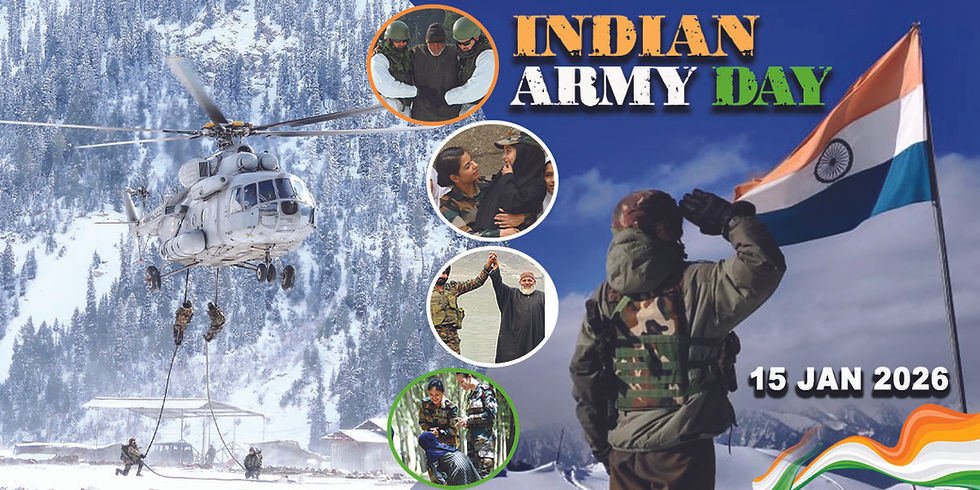THE LOYAL AND UNWAVERING FRIENDS OF THE MEN IN UNIFORM PORTERS ON THE LoC
- Soldier Stories Of Kashmir

- Dec 8, 2023
- 4 min read
The practice of logistics in military operations has been in existence for as long as there have been organized armed forces and the term describes the very old practice comprising of supply, movement and maintenance of armed forces both in peacetime and battle conditions. Logistics determine the forces that can be delivered to the forward locations during operations. The management of these facets of military operations involves a supply chain management to ensure efficient and effective forward and reverse flow between the headquarters and the front lines. Although the present-day scenario primarily focuses on mechanical transport by road and air, in the mountainous terrain abundant in our country, these modes often present more limitations than extensions of logistical capability. In such terrain, local populace which is adept in traversing the land on foot and proficient in carrying heavy loads are a sigh of relief.

Indian army has been deployed in mountainous terrain of Jammu and Kashmir since nascent stages of the country having achieved freedom. And since these nascent stages, porters have been adjunct to the effective functioning of the forces in these areas. Owing to the fact that these porters are sons of the soil, they are more familiar with the land, its layout, nuances, weather cycles, plausible perils, and safe havens. Their understanding of terrain gives them an edge over standard logistic framework of the armed forces, consequently increasing the efficacy of the logistic chain many folds. In the scenario of the line of control against the adversary, porters are often found with an understanding and knowledge of the terrain occupied by the enemy. Moreover, when nurtured properly, attainment of valuable intelligence is also highly plausible, which not only boosts the logistic plan but also the operational planning capability of commanders at all levels.
Many instances of bravery and patriotism have been unveiled in recent years which give an account of the steadfastness and dedication of porters towards providing valuable intelligence to Indian Army, especially during Kargil War of 1999. Throughout the war, civilian porters played a pivotal role, braving constant shelling by the Pakistani forces. Mohammad Isaaq, a resident of Dras served with the army as late as 2020. Only a teenager back then, Mohammad recollected his experiences with news agencies, recounting his hardships during Kargil war when he braved flying bullets and enemy shelling while supplying loads to the Indian army by night. He expressed his deep connection to the forces since those times which led him to continuing his service to the nation even till recent years. Another story of undoubting faith and dedication of locals serving as porters with the army comes from the Poonch district involving lineage of Mohammad Khursheed Nan who served as an ad-hoc porter during the formation of Poonch brigade in 1947. Despite attempts of propaganda by the contemporary Pakistan agencies to form a religious wedge between Hindus and Muslims, Khursheed exhibited tremendous efforts as part of civilians attached with the Poonch Brigade that was holding against heavy enemy artillery. Khursheed, who owned a small family farm land on outbreak of war, had to evacuate with his son, Masroor who was only in his early teens and found safe haven under the fortifications created by Brig Mohammad Usman. When the brigade faced shortage of rations, Khursheed along with some of his friends assisted the armed forces in getting supplies from nearby farms, including his own, which were swarmed by the Kabaili raiders and Pakistani troops.
Khursheed’s son, Masroor two decades later served with the same unflinching faith with the Indian army during the 1965 and 1971 war against Pakistan, as porter carrying rations and ammunition for the troops occupying nation’s frontiers. His son, Mujammil, who was only a young lad during this phase, continued the legacy of serving in the cadre as a locally recruited porter during the Kargil war of 1999. The services of such porters are exemplary anecdotes of selfless service and patriotism. Another brave porter, Stanzin Padma, a 31-year-old serving in Ladakh and the Siachen Glacier, carried loads in excess of 20 kgs to high-altitude posts under extreme terrain conditions. His efforts, which included braving avalanches and deep crevasses, helped save the lives of Indian Soldiers. He and his fellow porters also retrieved bodies of deceased soldiers in such challenging environments. For his service, Stanzin Padma was awarded the Jeevan Raksha Padak by the union home minister in 2014.
It is evident that porters are the most important segment of military logistics in mountainous terrain especially in LoC scenario. This cadre has faced hardship of terrain and battlefield perils at par with the men in uniform guarding our frontiers. In recent times, significant efforts have been made towards improvement of the porter cadre by introducing welfare-oriented government policies, which provide lifestyle benefits including authorized rations and medical care. In the forthcoming years, the Indian Army is likely to experience an active environment at the Line of Control. It can be said without any doubt that porters remain a force multiplier of armed forces on the Line of Control and the special bond between these two grows stronger with each passing day. The nation is proud of these brave and loyal porters, who have dedicated their lives over generations for facilitating the men in uniform.







Comments